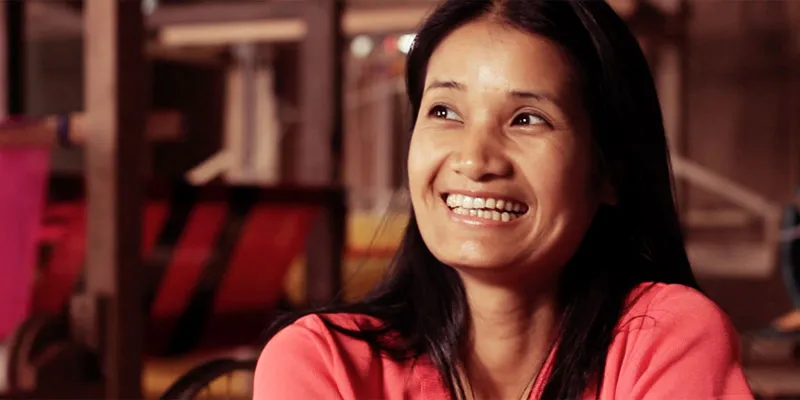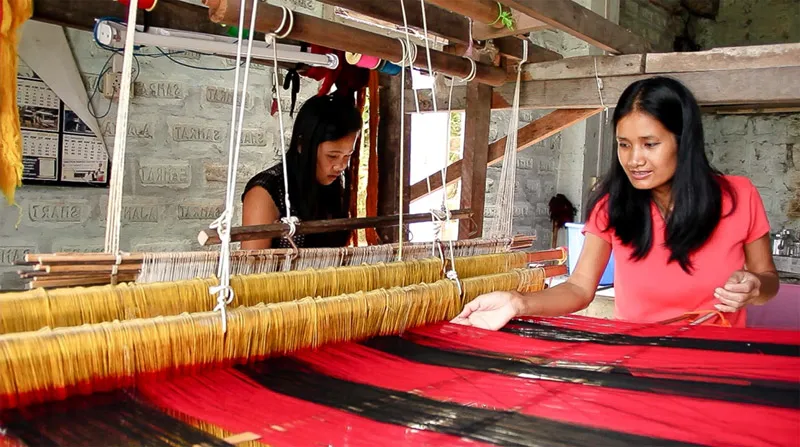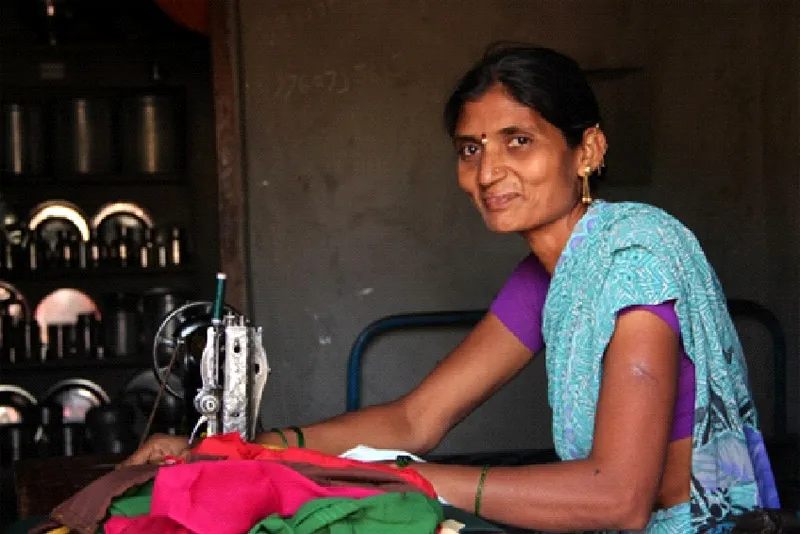How 3 women entrepreneurs from rural India are creating opportunities for others
This article is published in collaboration with Milaap.org
Every year, the international community bands together on March 8th to celebrate International Women’s Day. From retailers throwing sales to social activists and organizations hosting various events– the focus through March is on women: their victories, their needs, and their issues.
This year, the International Women’s Day theme is ‘Make it Happen’ – a call for greater equality for women, a celebration of their achievements. In that spirit, we recognize three heroic women from rural India who conquered difficulties and also created opportunities for others.
Lalfakzuali – fight for equality wove her destiny

Lalfakzuali was determined to build a future for herself and her son. It was a decision she’d made long before her husband had spitefully uttered, “Ka ma che!” Words that, under Mizoram’s customary law, meant she had been divorced. Everything she had worked for and earned was no longer hers. She was lucky to get away with her son. She had turned, then, to her father, who had opened his door to see her carrying her baby and a bundle of belongings.
Back under her father’s roof, Lalfakzuali wove to earn her living. They created intricate shawls and ‘puans’, traditional Mizo skirts, from brightly colored yarn.
When their parents passed away, Lalfakzuali and her sisters decided to carry on the weaving business. While Lalfakzuali wove and made plans, her sisters mostly managed the sales and diversified into other businesses.
Three years went by. As the demand grew for their shawls and ‘puans’, she knew it was time to share her plans. “We should buy a third loom,” she said one day to her sisters. “We don’t have the money,” they replied.

But she bought the looms, nevertheless, and business flourished. Today, Lalfakzuali employs four more women, owns five looms, and runs a thriving business in Aizawl. She will earn enough to see her seven-year-old boy educated.
This part of the story is best told by Lalfakzuali herself. Click on the video and see what she has to say.
Sunitaben Vadecha – breaking past prejudices against girls
In the narrow alleys of Gandhidham, Gujarat, Sunitaben has sold vegetables for eight years. “I never went to school,” she says. “My parents had just enough to put a roof over our heads. As far as our community is concerned, educating girls is a complete waste of time. After all, we only have to grow up, leach a dowry off our parents and get married, have children, run our kitchens. When I turned 19, I was married off.”
“Over the years, we had four children. We live with my mother-in-law. My husband makes only Rs. 5000. It is not enough for four children, the two of us, and an ageing old lady to survive. I was never allowed to step out. But I had to put my foot down. Now, my vegetable business feeds us. This is no life for my children. They must go to the best schools, have opportunities to do better.”

Sunitaben and her daughter
Through a non-profit, she secured a crowdfunded loan, and invested in growing her business. In a few months, she multiplied her monthly savings five times over. “I keep saving and reinvesting. At this rate, by the time my youngest reaches college, there will be enough for fees. My daughter will also be able to attend college.”
She is happy to be creating an equal opportunity for her daughter now.
Mahananda - breaking the odds to give women in her community a future

Mahananda is from Kappalaguddi, a village in India. Opportunity is hard to come by in Kappalaguddi, especially if you’re a woman and certainly if you’re a woman who tries to take care of a sick mother.
Mahananda says her uncles helped pay for her mother’s medical care. Instead of paying it forward, her uncles wanted payment back. The amount was Rs 3,000. Today, that’s 50 US dollars.
Mahananda was 16. She didn’t have the money or a way to get it. Be forewarned, what happened next is tough to read.
“They made me a Devadasi and sold me to a trader for money in Sangli for sex trade,” Mahananda recounted.
Watch the video for Mahananda’s story of enslavement, escape, and triumph.
Even though the practice of having a Devadasi was outlawed in the 1980s, women are still forced to serve as Devadasis across India.
Mahananda spent three years at a brothel house. Only after getting pregnant and pleading with the brothel owner was she eventually let go.
Just because Mahananda escaped didn’t mean her nightmare ended. She met Sitava, an activist who tries to help former Devadasi assimilate back into some normal sense of life. Sitava says it’s an overwhelming process.
“Once you are made a Devadasi, you cannot marry anyone,” Sitava said. “People refuse to accept you. You are incorrectly labeled a ‘whore’…even parents constantly trouble you and you have no place and no respectable status in society.”
When a mountain of adversity stares you square in the face, you need a little hope. The easiest option would have been to make her daughter a Devadasi. But it did not feel right. So she set out one last time and found MASS – an organization that trained women like her, and helped them earn back their dignity.
MASS helped her crowdfund a microloan through one of its partners.
With the help of a microloan she has now been running her own sewing business.
Mahananda started with nothing, and was constantly pushed back by society. But she never gave up, and now, her daughters have a good life. She is living testament to the power of a mother’s love and a woman’s strength.
This has created a new future not just for her daughters, it has empowered her to help other women like herself, former Devadasis who also want to make a new beginning.
The encouraging reality of her story is that Mahananda is not the only one. Across rural India, women with little education and benefits are battling socio-economic setbacks to build a better tomorrow for their children. They are seeking training and financial support.
They set out bravely on their own as women entrepreneurs, rallying support for each other, breaking barriers, and bringing on a revolution.
If we can support their movement, recognize these efforts, and give these brave women like Mahananda a boost, it truly is a Happy Women’s Day!







